IQACInternal Quality Assurance Cell (IQAC)
The Internal Quality Assurance Cell (IQAC) of Bharathidasan College of Arts and Science College has been established in the college at the instance of the National Assessment and Accreditation Council (NAAC) as a quality sustenance measuring cell.
IQAC Vision
To look after and ensure the initiatives taken up by the college for the development, excellence in the education and managerial setup by undertaking periodic check & assessment and attaining a new benchmarks.
IQAC Mission
- Acting as a agency of the institution for organizing quality associated performance, with the implementation and spreading of best practices.
- Expanding of excellence in academics for the institution with various quality based activities.
- To monitor the progress and application of quality standards / factors.
- Facilitating the formation of a learner-centric atmosphere favourable to excellence in education and faculty growth to take on the necessary information and skill for participatory teaching and learning process.
OBJECTIVE
The Primary aim of the IQAC is to develop a system for conscious, consistent and catalytic action to improve the academic and administrative performance of the institution.
- Development and application of quality benchmarks/parameters for various academic and administrative activities of the Institution
- Facilitating the creation of a learner-centric environment conducive to quality education and faculty maturation to adopt the required knowledge and technology for participatory teaching and learning process
- Arrangement for feedback response from students, parents and other stakeholders on quality-related institutional processes
- Dissemination of information on various quality parameters of higher education
- Organization of inter and intra institutional workshops, seminars on quality related themes and promotion of quality circles
- Documentation of the various programmes/activities leading to quality improvement
- Acting as a nodal agency of the Institution for coordinating quality-related activities, including adoption and dissemination of best practices
- Development of Quality Culture in the Institution
- Preparation of the Annual Quality Assurance Report (AQAR) as per guidelines and parameters of NAAC, to be submitted to NAAC
| Members from Management |
Mr.N.K.K.Periasamy, Mr.V.R.Murugan |
| Chairperson: | Dr.S.Kamesh, Principal. |
| Coordinator: | Dr. P.Suresh Babu, Department of Computer Science |
| Administrative official | Mr. R.Arul Kumaran, Administrative officer |
| Teachers Representatives |
Dr. S.Selvi, Dept of Biochemistry |
| Administrative Staff | Mr. Kanagaraj Office Superintendent |
| Students Member | |
| Member from Local Society | Mr.S.Thangamuthu, Chithode |
| Alumni Member | Mr.V.Sivasankar, Dept. of Computer Science |
| Industrialists | Mr.D.Venkateswaran Partner & Head – Technical & Production C.D Group of Companies, Erode |
| Parent Member |
2022 -2023
Celebration of 75 years of Independent India
IQAC in association with Fine Arts Club, Language Department, NSS & YRC and Physical Education organized 5 days Celebration of 75 years of Independent India form 09/08/2022 to 15/08/2022. Various competitions namely Poster Creation, Drawing, Oratorical Competition – Tamil & English, Clean Campus Campaign, Creating India 75 with students and Chess Tournament were conducted. Around 75 Students participate in the event. Winners of the various were given away with prizes on 15th August 2022 Independent Day Celebration.
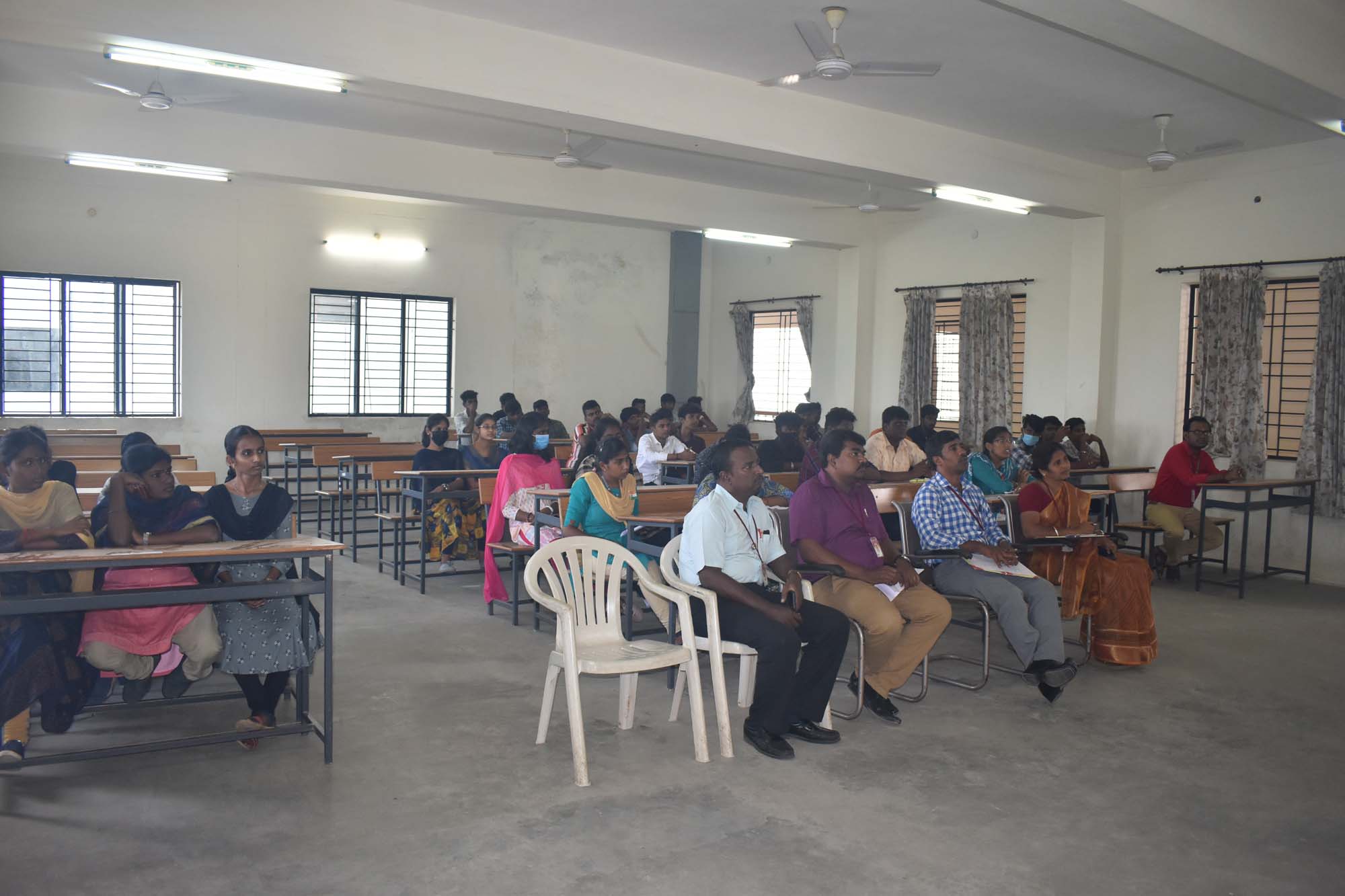
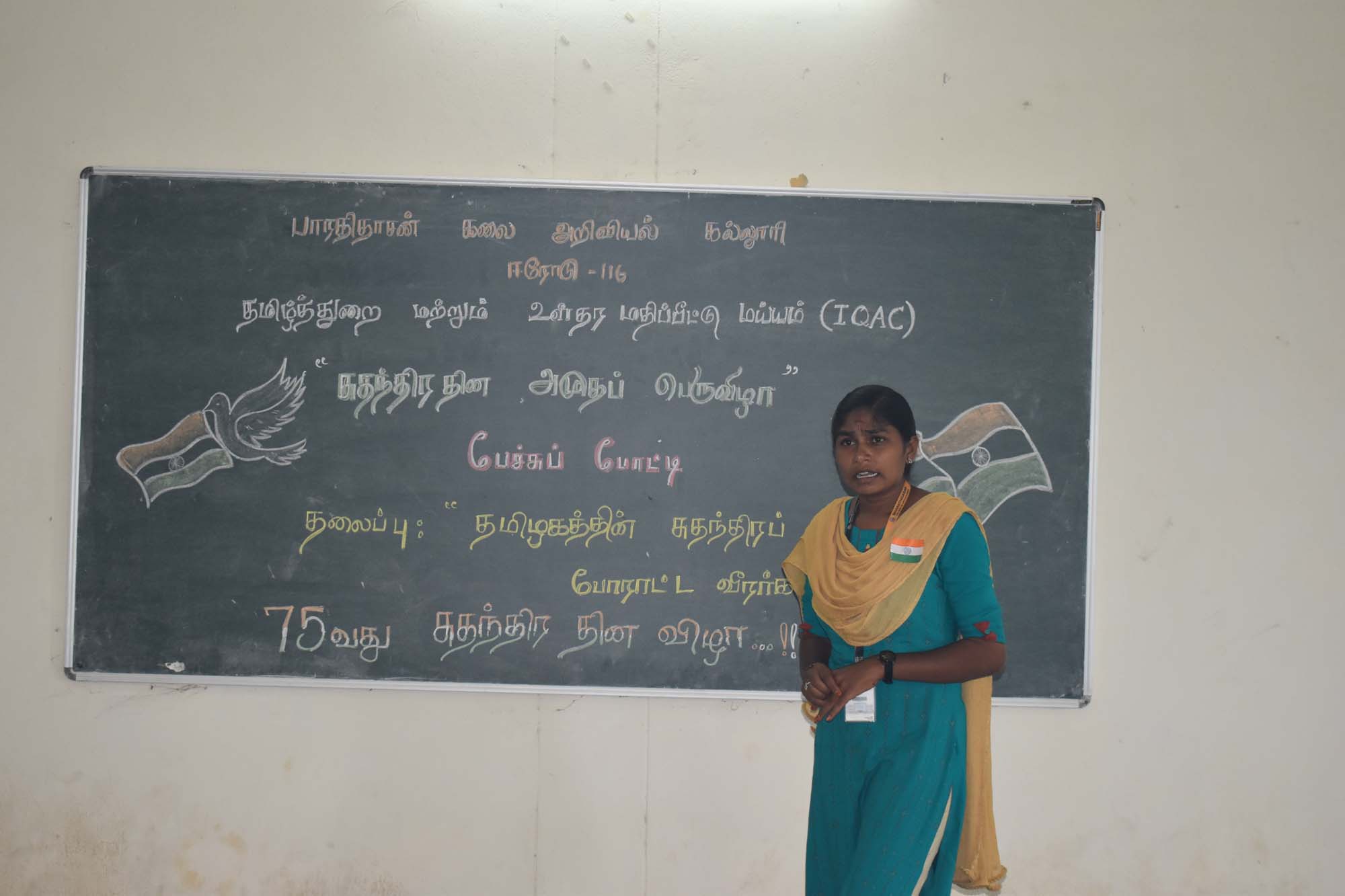
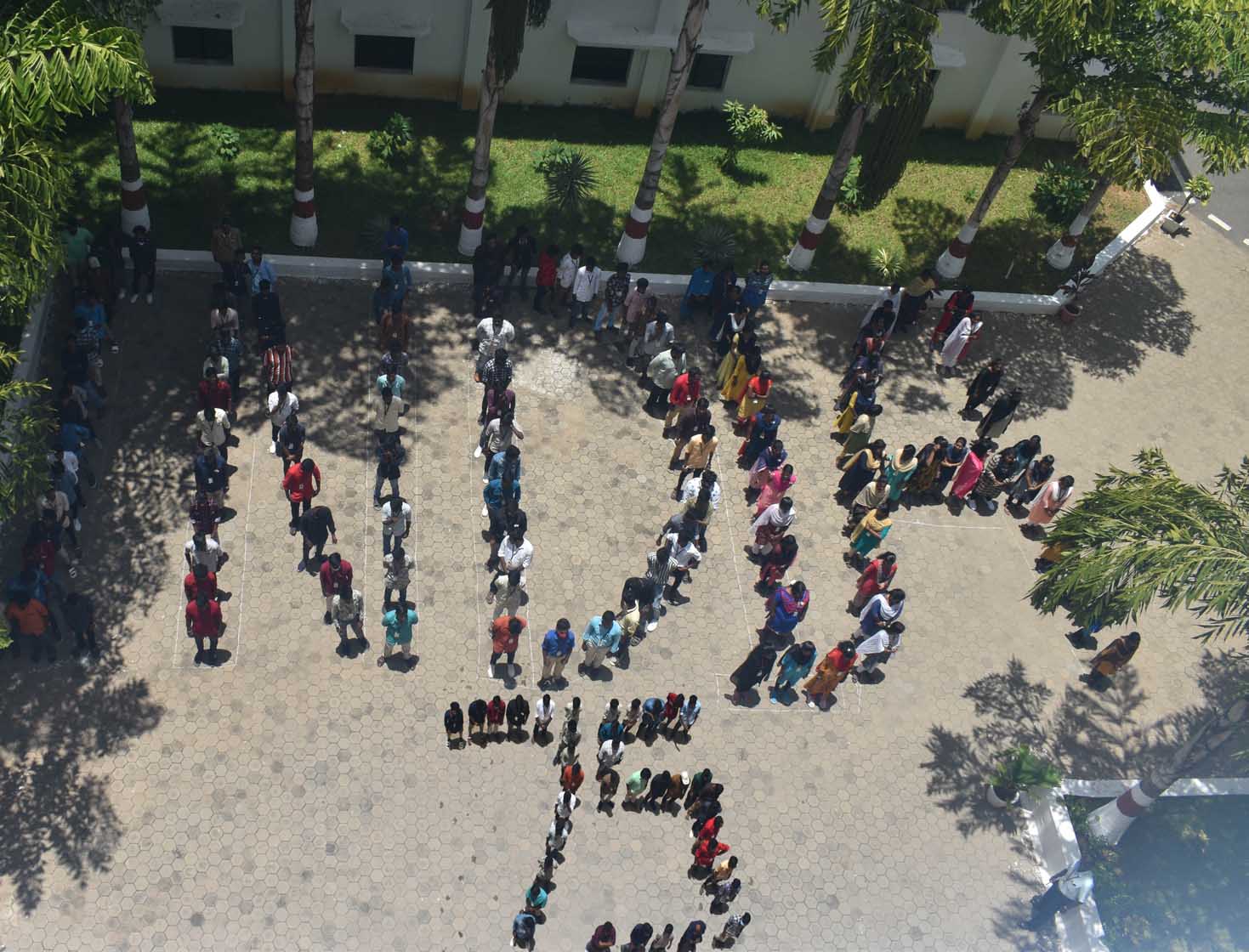
2021 -2022
Reconstition of IQAC
After retirement of Principal Dr.R.Shunmughan, IQAC was reconstituted on 25/04/2022 with Dr.S.Kamesh, Principal as Chairperson who took charge as Principal on 06/04/2022. In newly formed cell Ms.M.Sakthivadivu will be performing her duty as DDC Co-ordinator along with rest of existing members, new student member and new parent member for II Cycle.
NAAC Peer Team Visit
NAAC Peer Team Visit was held on 20th, 21st October 2021. Peer Team members, Dr.Upendra Dwivedi, Vice Chancellor, University of Lucknow, Dr.Manju Jaidka, Professor, Dept of English, Shoolini University, Solan, Dr.Chandrakant Rawal, Principal, BM College of Commerce, Pune visited the campus and verified the Documents, Physical Infrastructures and other facilities of the Institution. On 21/10/2021, during the NAAC Exit meeting PTV Report was handed over to the Principal. After Peer Team Assessment, our institution Grade was declared on 26/10/2021. Our College is accredited with a CGPA of 2.64 on a seven point scale with B+ Grade which will be valid for a period of 5 years from 26th Oct 2021.
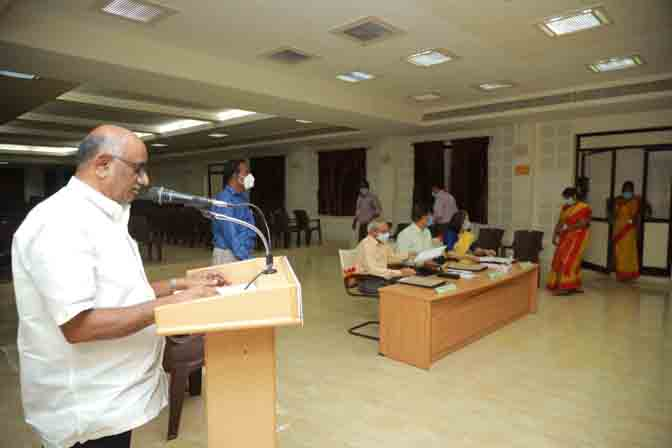
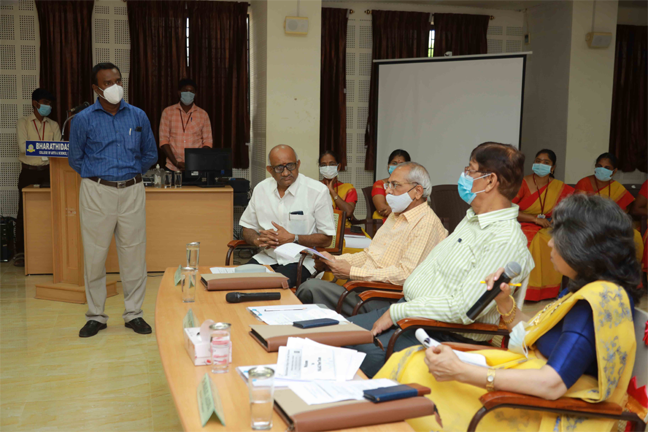
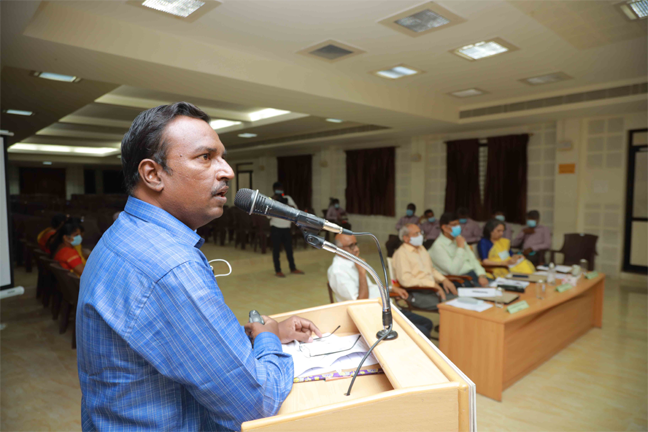
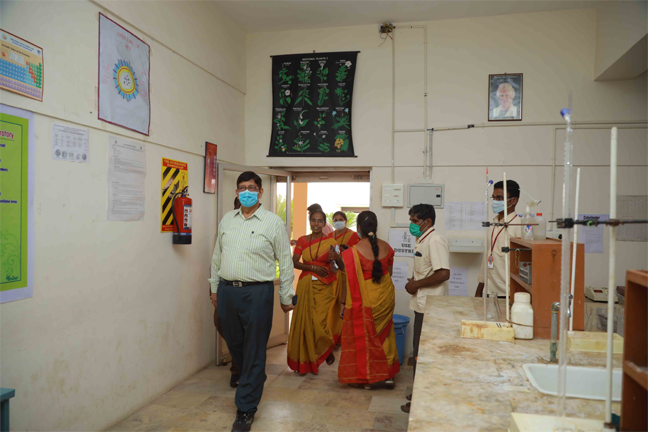
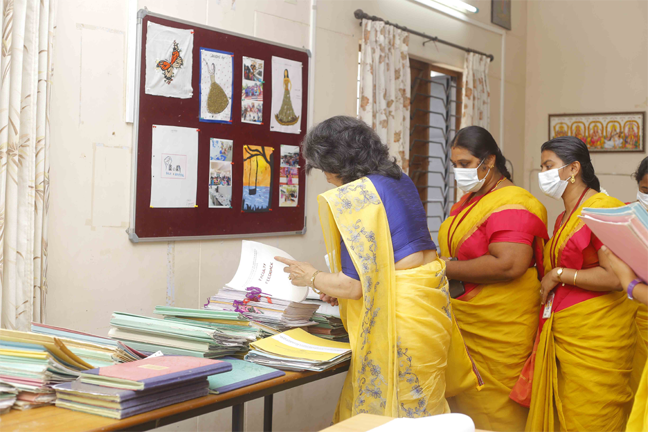
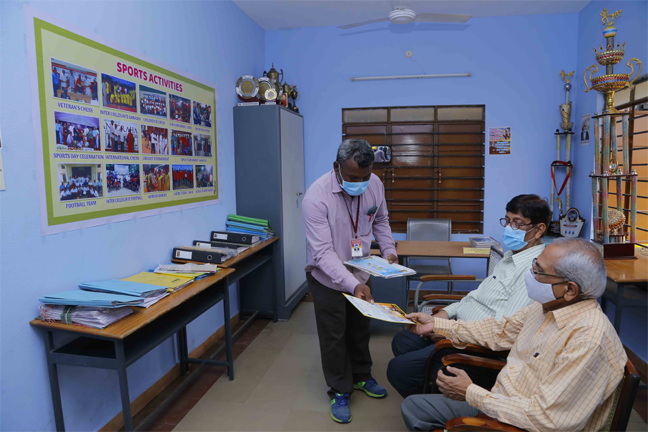
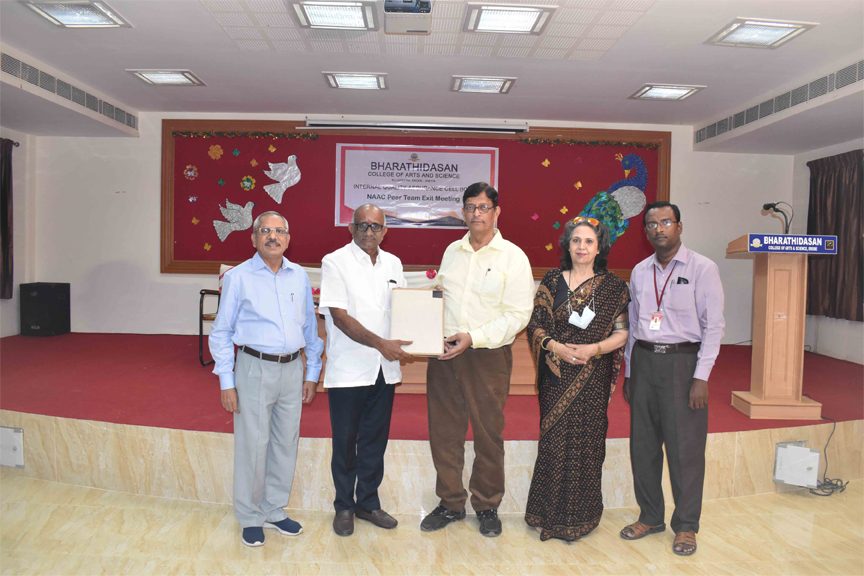
2019 -2020
IQAC and Women’s Forum of our college organized a hands on training programme “Personality Development and Grooming“ for the girls students on 30th Sept 2019. Ms.K.A.Anjuman Bhanu , South Zonal Trainer, Rexona Confidence Academy, Hindustan Unilever Ltd., was the resource person. She gave interview tips such as how they should prepare for the interview ahead of time, maintain confidence and eye contact throughout the interview, what type of dress they have to wear for the interviews and what type of preparation they have to do for interview.
“National Seminar on Teaching Pedagogy and Psychology (NSPTT)” was organised by IQAC on 27/07/2019. Prof.Harishchand.Ch, Head of the Department, Department of English, CHMM College for Advanced Studies, Kerala and Dr.B.Selvaraj, Head of the Department, Department of Psychology, Government Arts College, Coimbatore were resource persons for the seminar. Seminar discussed about Teaching Pedagogy and Psychology.
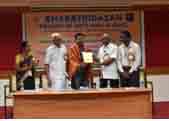
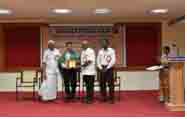
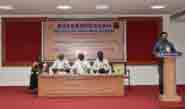
In assoication with PG & Reserach Department of Computer Science ":Tree Plantation" was made in the College Campus for supporting Green Environemnt of BCAS.
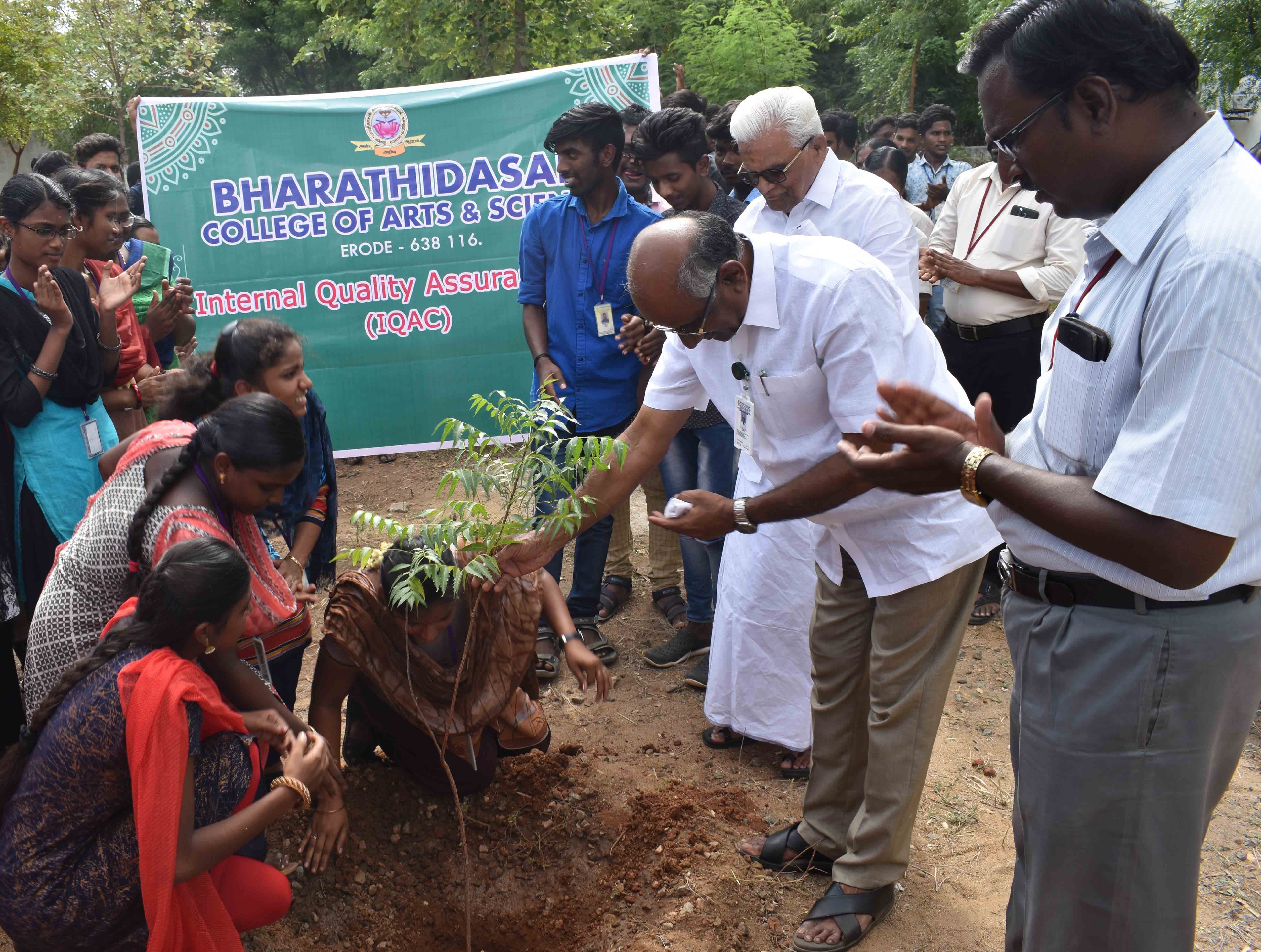
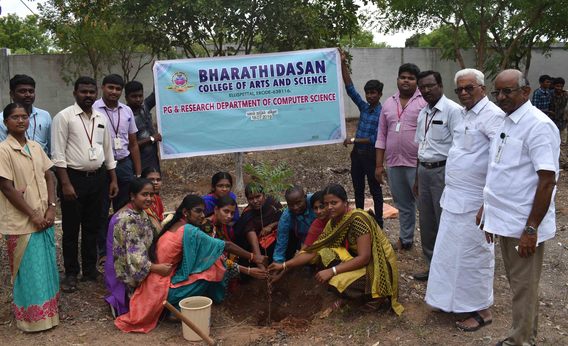
“Faculty Enrichment Programme” was organized for Faculty Members of BCAS on 10th June 2019. Dr.M.Shanmuga Sundaram was Resource Person. He motivated and guided the faculty members for handling classes and students in positive manner.
NAAC Documents
Institutional Information for Quality Assessment(IIQA) - Click Here
Institutional Best practices - Click Here
Institutional Distinctiveness - Click Here
Self Study Report (SSR) - Click Here
AQAR 2020-2021 - Click Here
Best Practice 1:
1. Title of the practice: Organic farming and Vermicompost Unit
2. Objectives of the practice:
The intension aim of the practice is
- To conserve endangered medicinal plants and native vegetables
- To adhere / sustain waste management
- To develop the entrepreneurship skill among the scholars
- To bring an awareness among farmers regarding organic farming
- To train the academicians and public about vermicompost and vermiculture
3. Context:
The institution has a total of 16 acres of land. Apart from the buildings there is enough space available for tree plantation and cultivation. Increasing the consciousness about conversation of environment, health hazards caused by agrochemicals and to create an awakening about many useful species which are on the verge of extension, the institution decided to sustain the endangered medicinal plants and native vegetables by practicing organic farming using vermicompost as manure. As most of our students hail from agrarian families they exhibited a readiness to take part in the practice and gaining awareness on organic farming.
4. Practice:
The college is provided with a vast open space suitable for harvesting and cultivation. The organic farming is one of the unique initiatives of the college where the available land is used for the cultivation of medicinal plants, native vegetables and mushroom. The organic waste collected from the garden such as grass clippings, dried leaves, spent mushroom substrate, vegetable waste from the campus (including mess and canteen) are decomposed in the vermicompost unit in the campus. The manure obtained is utilized for our farming purpose. The products obtained by this practice are available for the sale in the campus as well as the public. The college is sharing its continuous exposure to the farmers towards organic farming and its importance in agriculture practice.
5. Evidence of Success:
- Medicinal plants cultivated in the garden are utilized by the faculties as a traditional medicine.
- Yield of vegetables is appreciable by the use of organic manure.
- Many college and school students visited vermicompost unit and gained knowledge about the same.
- After visiting our campus, vermicompost units have been established in three neighbouring institutions in our district under our guidance.
- Worms maintained in our unit is regularly supplied to the karandi and Perundurai Panchayat for their use.
- A number of farmers have benefitted by the awareness program on organic farming and have implemented it in their farms.
6. Problems Encountered & Resource Required:
Worms and plants maintenance is crucial due to water shortage during summer.
Best Practice 2:
Title: Renewable Energy production and conservation
Objective:
The main objective of the practice is
- To conserve non renewable energy source by using renewable energy (solar energy)
- To meet the power requirement of the campus through solar power
Context:
Energy conservation is the effort made to reduce the consumption of energy by using of an energy service to the minimal level. Energy conservation measures in buildings reduces the need for energy service from non renewable source and can result in increased environmental quality, national security and personal financial security. In this context institution has initiated the use of solar energy (renewable resource) in the campus.
Practice:
The college has taken a lead in deploying rooftop solar powered system for electricity generation, thereby reducing the dependence on conventional power supply. There are 64 solar panels installed in our campus with a total capacity of 20KV. Nearly 30 - 40 units per day are generated from solar power. The power requirement of the college is about 7000units per month of which about 20% of the energy is being met from the solar generated power. 16 solar street lamps have also been installed and maintained in the campus separately.
Evidence of Success:
Solar panels connected to the power supply grid generate 20KV of solar electricity. This meets about nearly one fourth of the total power requirements of the campus. The solar street lamps are also successfully illuminated. Thus renewable energy source is used to minimize the non renewable energy.
Problems encountered and Resource required:
- Cleaning of solar panels is a risky task since it may lead to damage of thee solar panels which are costly to repair.
- Maintenance of battery is also a risky affair.
Photos - Click Here
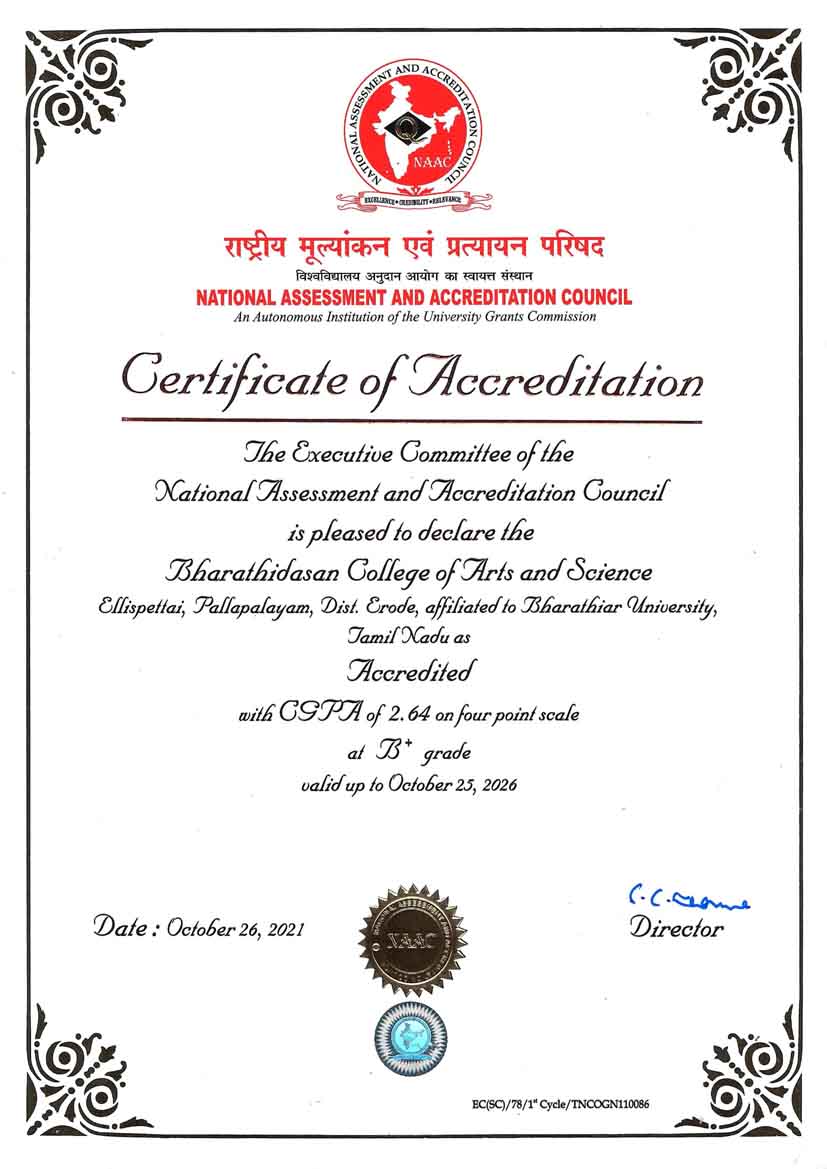
Contact UsWelcome to our College. We are glad to have you around.
- Chithode to kavindapadi Road, Ellispettai, Pallapalayam (PO), Erode - 638116, Tamilnadu, India.
- +91 9787030413, +91 8526935045, 0424-2534121
- bcas95@gmail.com
- Contact us >>
© 2017. All Rights Reserved | Bharathidasan College of Arts & Science